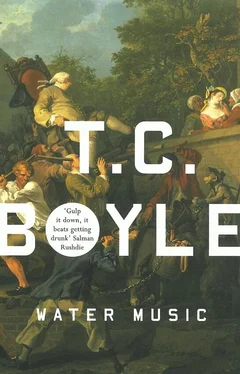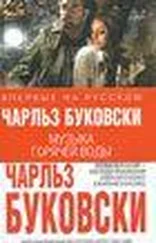It’s no picnic, life on the Sahel, let’s face it. Talk of scarcity and want, whims of nature: welcome to them. Talk of years when the rains won’t come and the sweet bleating herds build monuments of bone to the sun. Or a well that goes salt, sandstorms that shear the whiskers from your cheeks.
Then there are the hyenas — making off in the night with kids and goats, disemboweling them and leaving the pissed-on remains for vultures and jackals. And then there’s the push south: the farther you go, the greater the risk of a sneak attack by the Foulahs or the Serawoolis. That’d be a fine thing. Your people in chains, cattle butchered, horses raped, kouskous devoured. Of necessity, life is lean. And portable. The entire camp at Benowm — all three hundred tents — could be gone in an hour, fata morgana.
Because he lives under the gun, Ali puts his stock in movable wealth, wealth on the hoof — camels, horses, goats, oxen, slaves. If you inventory his material possessions he’s practically a beggar. The Emir of Ludamar, ruler of thousands, hegemon of an area the size of Wales, man of the Book and descendant of the Prophet, actually owns fewer things than a Chelsea chambermaid. A goat-hair tent, a change of jubbah, a pot, a cookstove, two muskets, a leaky hookah and a blunt-edged saber that once belonged to Major Houghton — that’s about it. Ah, but his horses — moon-white, marbled with muscle, their tails red as an open vein (he dyes them). And his women! If Ali is to be envied, it is for his women. Any one of his four wives could launch a thousand ships — if they knew what ships were.
Chief among them — in influence and beauty both — is Fatima of Jafnoo, daughter of the shereef of the Al-Mu’ta tribe, Boo Khaloom. Fatima’s erotic charms are predicated entirely on a single feature: her bulk. In a bone-thin society, what more appropriate ideal of human perfection? Fatima weighs three hundred and eighty-two pounds. To move from one corner of the tent to another requires the assistance of two slaves. On the sixty-mile trip to Deena, in the north, she once prostrated a pair of camels and a bullock, and finally had to be transported on a litter drawn by six oxen. Ali comes in off the desert, blood and sand in his eyes, and plunges into the moist fecundity of her flesh. She is a spring, a well, an oasis. She is milk overspilling the bowl, a movable feast, green pasture and a side of beef. She is gold. She is rain.
Fatima was not always a beauty queen. As a girl she was a mere slip of a thing — big-boned and with enormous potential, yes — but nonetheless something of a slim and dark-eyed ugly duckling. Boo Khaloom took her in hand. He stepped into the tent one evening with a rush mat and a pillow. He spread the mat in a corner, set the pillow atop it, and commanded his daughter to sit. He then called for camel’s milk and kouskous. Fatima was puzzled: the remains of the evening meal — wooden bowls black with flies, an overturned pitcher — still lay in the corner. All at once she became aware of shadows playing over the walls of the tent, as if a number of people were milling around outside. She asked her father if he was planning to meet with his counselors. He told her to shut her hole. Suddenly the flap was thrown back and a man entered the tent. It was Mohammed Bello, sixty-three years old, her father’s closest friend and advisor. He was naked. Fatima was mortified. She’d never seen a man’s legs before, let alone those puckered wattles squirming against the old man’s leg like some freak of nature. She thought of the spineless struggling things caught in the muck of a dying waterhole. She was eleven years old. She burst into tears.
Mohammed Bello was not alone. The flap swished and eight other men, naked as babes, stepped silently into the tent. Zib Sahman, her godfather, was among them. And Akbar al-Akbar, the oldest man of the tribe. When they were all assembled, a slave entered with a bowl the size of a birdbath. The bowl contained camel’s milk, a week’s supply at least. He was followed by a second slave carrying an even larger bowl filled to the rim with kouskous. The bowls were set before her. Camel’s milk is sweet, and rich with nutrients. Kouskous, a sort of porridge made of boiled and pounded wheat, is the staple of the Moors’ diet. It is not at all unpalatable, but all things have their limits. “Eat,” said Boo Khaloom.
At first she didn’t understand. Surely all this food must be for her father’s guests. Did he expect her to serve them? But then she remembered that they were all naked and she began blubbering anew. Her father was shouting. “Eat, I said!” he roared. “Don’t you understand Arabic? Have you lost your hearing? Eat!”
She glanced up at the eight venerables. They sat in a semicircle, watching her. They were still naked. And then came the biggest jolt of all: her father was stepping out of his jubbah! All her life — through meals, bedtime, on the road — she never glimpsed anything more than his face, hands and toes. Now suddenly here he was — naked — and equipped with the same rubbery wattles as the others. She was terrified. “Eat,” he repeated. She was dazed. It was then that the switch appeared in his hand. He struck her twice across the face. She cried out. He struck her again. And then again. “Eat,” he said.
She put her lips to the milk and drank between sobs. She took a fistful of kouskous and forced it into her mouth. But she wasn’t hungry. She’d just eaten — and eaten more than usual. Her mother had been nagging her about her bones, her coarseness, how no husband would want her, a girl who looked like a desert ostrich. And so she had made an effort to eat more. Now she was full: another bite and she’d puke. The porridge caught in her throat.
Boo Khaloom was deranged. He whipped and shouted till his arm throbbed and his throat went raw. “No more cat’s cradle with the other girls, no more lessons, no weaving — nothing. You will sit here, on this pillow, and eat until you come of age. You will eat and you will grow. You will be beautiful. Do you hear? Beautiful!” Mohammed Bello and the others watched. From time to time one of them would nod approvingly. Fatima ate. Wept and ate. “And when you come of age you will continue to eat — day and night. That is your duty. To your father, and to your husband. He will have a rod!” her father shouted. “A rod like this one. And he will thrash you as I am thrashing you now and as I will thrash you tomorrow and the next day and the day after that!” Suddenly the venerables were on their feet, as if this were some sort of signal. Fatima looked up, her cheeks swollen with mush, and gasped: a hideous unnatural change had come over them. Where before they’d been flaccid, now they were hard. Wizened old turkey cocks, their members engorged, they closed in on her. “Thrash you!” her father shrieked and they began pumping at themselves, milking their rods with a whack and thwap, their faces strained and distant, beatific even. Fatima felt as if she were made of wax. Her head was light. She was falling, tumbling down through the eons, chasms in the earth, the abyss. It was then that she felt the first few random drops, like rain.
After that excoriating and traumatic night, she ate. She ate prodigiously, furiously, she couldn’t get enough. Sugar dates, mutton, yogurt, slabs of salt, kouskous and dried fish, kouskous and nuts, kouskous and kouskous. There was fruit in the south — tamarind, cassava, watermelon — flat loaves of bread, jars of wild honey, yams, rice, maize, butter and milk, milk, always milk. Goat’s milk, cow’s milk, camel’s milk — she even suckled like an infant at the breast of a nursing slave. She was insatiable. She ate for fear, she ate for vengeance. She ate for beauty.
♦ TANTALUS♦
Читать дальше












